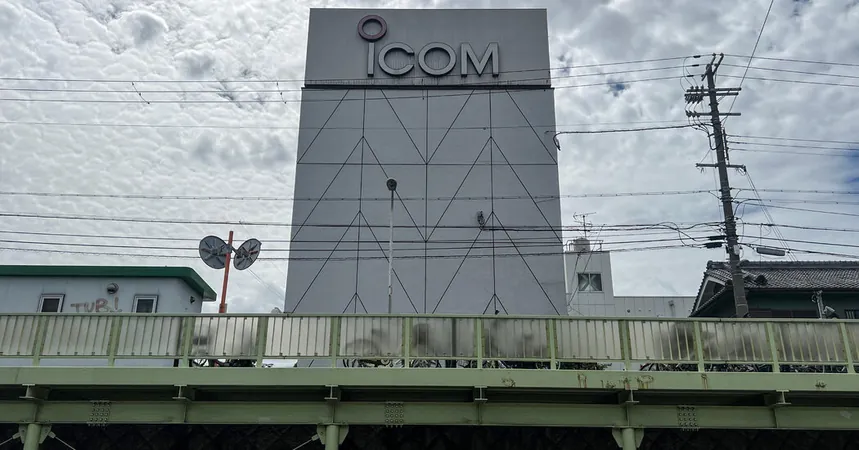
Explosions in Lebanon: Manufacturer Investigates Counterfeit Radios Linked to terrorist Group
2024-09-19
Explosions in Lebanon: Manufacturer Investigates Counterfeit Radios Linked to terrorist Group
In a concerning development, the Japanese telecommunications manufacturer Icom has launched an investigation into handheld radios that reportedly exploded in Lebanon. The IC-V82 model, which was visible in alarming footage from the scene, was manufactured by Icom but has not been produced since 2014.
During the Wednesday attacks, at least 20 lives were tragically lost, and over 450 people were injured due to explosions involving walkie-talkies owned by members of Hezbollah. The origins of these explosive devices remain murky, as it is not clear where Hezbollah procured them.
Icom, based in Osaka, Japan, stated that it shipped the IC-V82 radios to international markets, including the Middle East, between 2004 and 2014. However, the company has made it clear that it has not exported any models from its Wakayama plant for nearly a decade. Alarmingly, Icom has observed a concerning increase in counterfeit versions of the IC-V82 transceivers, which they have warned about since at least 2020.
Japan’s Chief Cabinet Secretary, Yoshimasa Hayashi, revealed that the Japanese government is also investigating the explosions. As it stands, Icom claims that nearly all IC-V82 radios currently in circulation are likely counterfeit. Notably, the authentic units are marked with a hologram label indicating that they are “genuine” Icom products.
The lack of the counterfeit-prevention hologram on the exploded devices makes it impossible for Icom to definitively determine whether they are legitimate products. The company emphasized its commitment to strict export controls based on Japan’s regulations and stated that all its radios are manufactured locally.
The counterfeit versions pose significant risks, including the potential for fires or explosions due to faulty batteries, as stated by Icom. These imitation radios are frequently labeled “made in China,” while the genuine Icom radios are produced exclusively in Japan.
Intriguingly, these counterfeit radios are still easily accessible online, with prices varying from $32 to over $100 on popular Chinese e-commerce platforms like Taobao and JD.com. For bulk purchases, they are available for as low as $38 each, raising serious concerns about their safety and reliability.
This incident is not isolated; another explosion just a day prior, involving pagers, resulted in 12 fatalities and over 2,700 injuries, sparking further fears regarding the safety of communication devices in Lebanon.
As the investigation progresses, both Icom and the Japanese government are expected to provide updates. This situation highlights the growing problem of counterfeit electronics and the very real dangers they can present in volatile regions.
Stay tuned for further developments in this ongoing story. Could this be the beginning of a wider investigation into counterfeit electronics that could threaten lives not just in Lebanon, but globally?

 Brasil (PT)
Brasil (PT)
 Canada (EN)
Canada (EN)
 Chile (ES)
Chile (ES)
 España (ES)
España (ES)
 France (FR)
France (FR)
 Hong Kong (EN)
Hong Kong (EN)
 Italia (IT)
Italia (IT)
 日本 (JA)
日本 (JA)
 Magyarország (HU)
Magyarország (HU)
 Norge (NO)
Norge (NO)
 Polska (PL)
Polska (PL)
 Schweiz (DE)
Schweiz (DE)
 Singapore (EN)
Singapore (EN)
 Sverige (SV)
Sverige (SV)
 Suomi (FI)
Suomi (FI)
 Türkiye (TR)
Türkiye (TR)